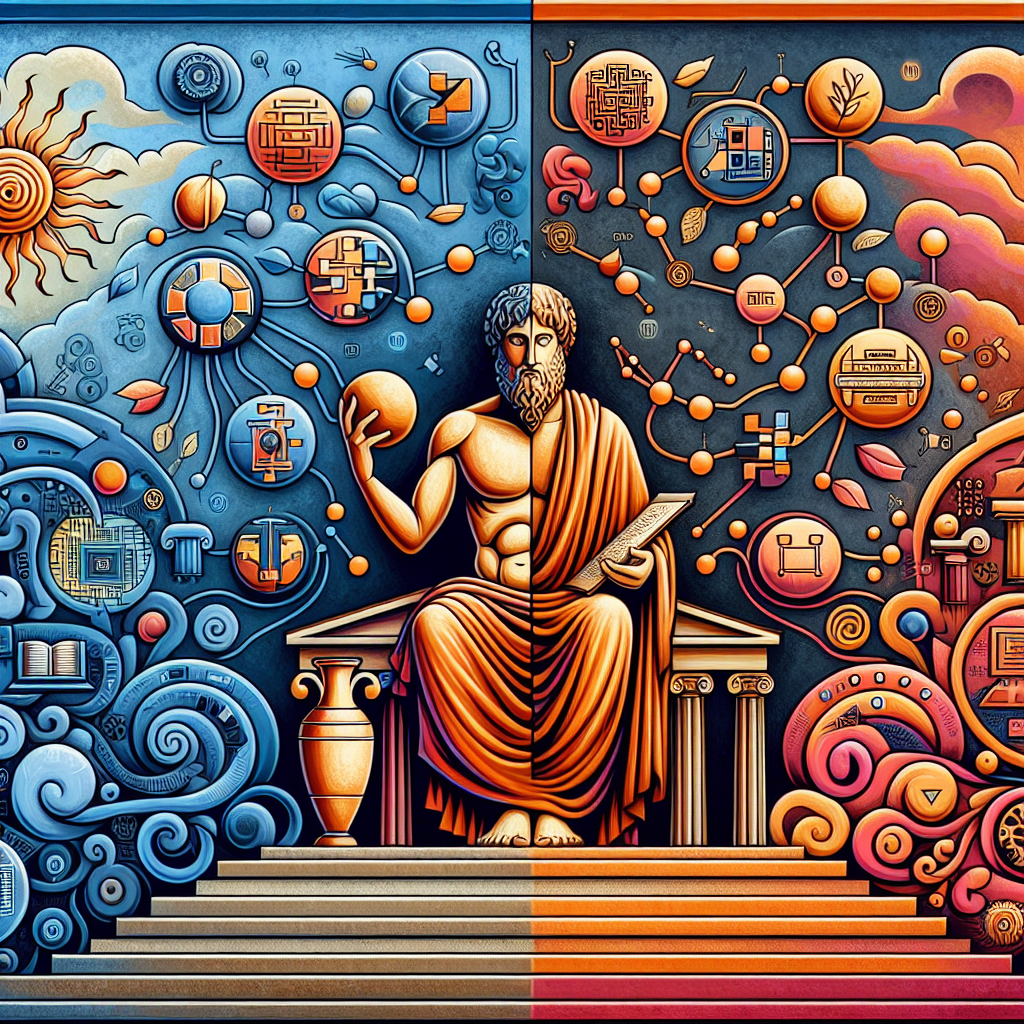Science
Aristotle’s Philosophical Framework Shapes Modern Computing

Aristotle’s influence extends far beyond the realms of philosophy, impacting modern computing in ways that may not be immediately apparent. His foundational principles in logic, knowledge, and ethics continue to inform contemporary discussions on information technology, programming languages, and artificial intelligence. This article examines how Aristotle’s philosophical legacy lays the groundwork for the theories and practices that underpin today’s computing technologies.
The Foundations of Logical Reasoning
Aristotle’s work in formal logic is perhaps his most significant contribution to the field of computing. His system of syllogistic reasoning, introduced in texts such as Prior Analytics, established a framework for structured thinking about propositions—statements that can be classified as true or false. This logical deduction forms the backbone of computational logic, which is crucial for the development of programming languages and algorithms.
Modern computers operate on binary logic systems that trace their roots back to Aristotle’s principles, allowing for complex operations built from fundamental truth values. Additionally, Aristotle’s emphasis on categorization and classification, presented in his work Categories, has had a lasting impact on computer science. This method of organizing information into hierarchical structures is evident in databases and object-oriented programming, where entities are classified into objects and categories, enabling efficient data retrieval and management.
Knowledge and Its Implications
Aristotle’s exploration of knowledge significantly influences computing paradigms. He differentiated between types of knowledge: episteme (scientific knowledge), techne (practical knowledge), and phronesis (practical wisdom). The field of artificial intelligence can be closely aligned with phronesis, as it seeks to replicate human-like understanding and decision-making, mirroring Aristotle’s concept of practical wisdom.
Moreover, Aristotle’s belief in knowledge gained through observation and experience resonates with current practices in machine learning. Here, algorithms learn from data inputs to make predictions or classifications, reflecting an empirical approach that has its roots in ancient philosophy. This iterative process is foundational to how modern computing technologies operate, emphasizing the relevance of Aristotle’s insights in today’s data-driven world.
Ethical considerations in technology have become increasingly important as computing technologies permeate daily life. Aristotle’s virtue ethics, which prioritize character development and the pursuit of the “good life,” provide valuable frameworks for contemporary ethical discussions in technology. The concept of the Golden Mean—that virtue lies between extremes—can guide the responsible development and application of artificial intelligence. Developers are encouraged to enhance societal welfare without compromising privacy or perpetuating bias, highlighting the need for a balanced approach in alignment with Aristotle’s moral philosophy.
Aristotle’s analysis of causality and potentiality also offers insights into the theoretical foundations of computation. His exploration of the four causes—material, formal, efficient, and final—can be directly related to modern computation theories. For instance, the material cause corresponds to hardware, while the formal cause relates to algorithms that structure computations. This multi-causal framework enriches our understanding of computational processes.
In the domain of concurrent computing, Aristotle’s ideas of potentiality and actuality help clarify concepts like state and transitions, particularly in systems that require careful management of resources and processes.
As we consider the future of computing, where artificial intelligence, machine learning, and ethical frameworks will play increasingly central roles, it is essential to engage with the philosophical roots that have shaped our understanding of knowledge and reasoning. Aristotle’s legacy is more than a historical reference; it forms a vital foundation upon which many aspects of modern computing rest.
In recognizing Aristotle’s contributions, we honor not only the past but also the enduring principles that guide us in navigating the complex intersections of technology and humanity. By grounding advancements in wisdom and ethical considerations, we can ensure that our technological progress serves the broader goal of societal betterment, principles that Aristotle championed throughout his life.
-

 Lifestyle4 months ago
Lifestyle4 months agoLibraries Challenge Rising E-Book Costs Amid Growing Demand
-

 Sports3 months ago
Sports3 months agoTyreek Hill Responds to Tua Tagovailoa’s Comments on Team Dynamics
-

 Sports3 months ago
Sports3 months agoLiverpool Secures Agreement to Sign Young Striker Will Wright
-

 Lifestyle3 months ago
Lifestyle3 months agoSave Your Split Tomatoes: Expert Tips for Gardeners
-

 Lifestyle3 months ago
Lifestyle3 months agoPrincess Beatrice’s Daughter Athena Joins Siblings at London Parade
-

 World3 months ago
World3 months agoWinter Storms Lash New South Wales with Snow, Flood Risks
-

 Science4 months ago
Science4 months agoTrump Administration Moves to Repeal Key Climate Regulation
-

 Science3 months ago
Science3 months agoSan Francisco Hosts Unique Contest to Identify “Performative Males”
-

 Business4 months ago
Business4 months agoSoFi Technologies Shares Slip 2% Following Insider Stock Sale
-

 Science4 months ago
Science4 months agoNew Tool Reveals Link Between Horse Coat Condition and Parasites
-

 Sports3 months ago
Sports3 months agoElon Musk Sculpture Travels From Utah to Yosemite National Park
-

 Science4 months ago
Science4 months agoNew Study Confirms Humans Transported Stonehenge Bluestones









